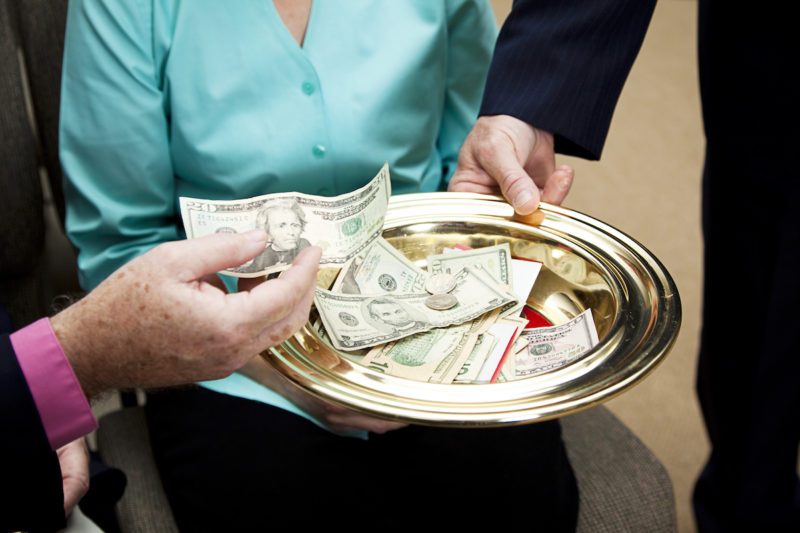Clergy Shouldn’t Be Able to Steal Funds for Grindr or Dolls
We could debate whether immoral people seek out positions in the clergy or whether clerical life corrupts people, but that debate misses the point.

Father Joseph McLoone, a Catholic priest from Pennsylvania—a realm of the Church that’s already plagued by horrible scandal—allegedly stole $100,000 to spend on “Grindr men,” globetrotting, and a beach house.
McLoone’s crime appears to be an isolated incident, but it’s indicative of a larger problem, one that could be easily fixed. Churches are incredibly susceptible to theft from within because, unlike every other non-profit and charity, the law does not require financial transparency for churches. They’re financial black holes.
Experts estimate that worldwide, churches lose $63 billion each year to internal “ecclesiastical crime.” That estimate is almost certainly low, due to underreporting and yet it still makes up more than 16 percent of churches’ total income. The director of that annual study believes that “as much as 95% of fraud within churches goes undetected or unreported.”
Headlines reflect this truth. One Catholic priest in Michigan embezzled about $5.4 million from the diocese. A Catholic priest in Connecticut admitted to stealing $1.3 million from the church. Sadly, though not unusually, the diocese forced out employees who uncovered the fraud for exposing it publicly. Another Connecticut priest also stole $1.3 million, some of which he spent on male escorts.
It’s not just priests, but volunteers. A 67-year-old church clerk—a “church lady”—in the archdiocese of New York stole $1 million to buy dolls.
Nor is the problem limited to the Catholic Church. Nearly every sect has seen million-dollar fraud from within, including Episcopalians, Baptists, Pentecostals, Presbyterians, and other religions too.
We could debate whether immoral people seek out positions in the clergy or whether clerical life corrupts people, but that debate misses the point. Most crimes are crimes of opportunity, and churches are ripe, unguarded fruit. And that is the central problem: Churches are not required to report any financial information to anyone.
Financial transparency is critical to preventing fraud and abuse. That’s why nonprofits file financial information with the IRS every year. Charities file an annual Form-990 that tracks every dime that flows through the organization. The smaller the non-profit, the less burdensome the disclosure requirements. Most larger charities go through an audit just to submit the form. Any fraud or theft would be quickly discovered and rooted out. Without this transparency, churches will continue to face fraud and abuse in the name of Grindr and dolls.
Congress could amend the law tomorrow to require that houses of worship file the same paperwork that every other nonprofit and charity files. This move would protect churches.
There’s no religious freedom issue with asking churches to file financial paperwork with the government. Tax exemption is a privilege, not a right. Congress can attach strings to that privilege, including financial transparency. And tax exemption is also a public trust. Entities that don’t pay taxes still get the benefits of a society funded by taxpayers and we have a right to know if that exemption is being abused to personally enrich a religious hierarchy.
Experts agree that the lack of transparency and annual reporting makes churches “among the most vulnerable entities” to fraud and abuse. And it could all end tomorrow.

